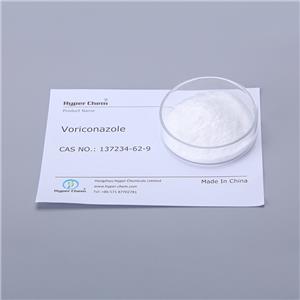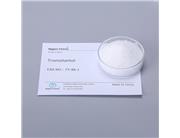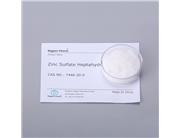Description:
Voriconazole is an antifungal medication used to treat various fungal infections. Here is an overview of Voriconazole, including its properties and medical uses:
Key Information:
Classification: Voriconazole belongs to a class of medications known as triazole antifungals.
Mechanism of Action: Voriconazole works by inhibiting the synthesis of ergosterol, a key component of fungal cell membranes, disrupting fungal cell growth and replication.
Medical Uses of Voriconazole:
Treatment of Invasive Fungal Infections:
Voriconazole is primarily used to treat serious fungal infections caused by various fungi, including Aspergillus species, Candida species, and others.
It is often prescribed for the treatment of invasive aspergillosis, a potentially life-threatening fungal infection that commonly affects individuals with weakened immune systems.
Prophylaxis:
Voriconazole may also be used as a prophylactic treatment to prevent fungal infections in individuals at high risk, such as those undergoing stem cell transplants or other immunosuppressive therapies.
Ophthalmic Infections:
In addition to systemic infections, Voriconazole can be used topically in the form of eye drops to treat fungal infections of the eye, including fungal keratitis.
Off-label Uses:
Voriconazole may be used off-label in certain cases to treat fungal infections not listed in the official prescribing information, based on the clinical judgment of healthcare providers.
Dosage and Administration:
Voriconazole is available in various forms, including tablets, oral suspension, and intravenous (IV) injection.
The dosage and duration of treatment with Voriconazole will depend on the specific type and severity of the fungal infection being treated, as well as individual factors such as age, weight, and overall health.
Precautions and Considerations:
Before starting Voriconazole treatment, it is important to inform your healthcare provider about any existing medical conditions, allergies, and medications you are currently taking.
Voriconazole may interact with certain medications, so it is essential to discuss potential drug interactions with your healthcare provider.
Common side effects of Voriconazole may include visual disturbances, skin reactions, liver function abnormalities, and gastrointestinal issues.
Monitoring:
During treatment with Voriconazole, healthcare providers may monitor liver function tests and other relevant parameters to ensure the medication is being tolerated effectively.
Voriconazole is a potent antifungal medication used to treat a range of serious fungal infections, particularly in individuals with compromised immune systems.
It is important to use Voriconazole as prescribed by a healthcare provider to ensure effective treatment of fungal infections and minimize the risk of potential side effects.
Payment method: T/T in advance, Paypal, Western Union, L/C, etc.
Shipping ways: Courier, Air, Sea, Road
Storage Condition: Dry, dark, and at 0 - 4 C for short term (days to weeks) or -20 C for long term (months to years).

 China
China




